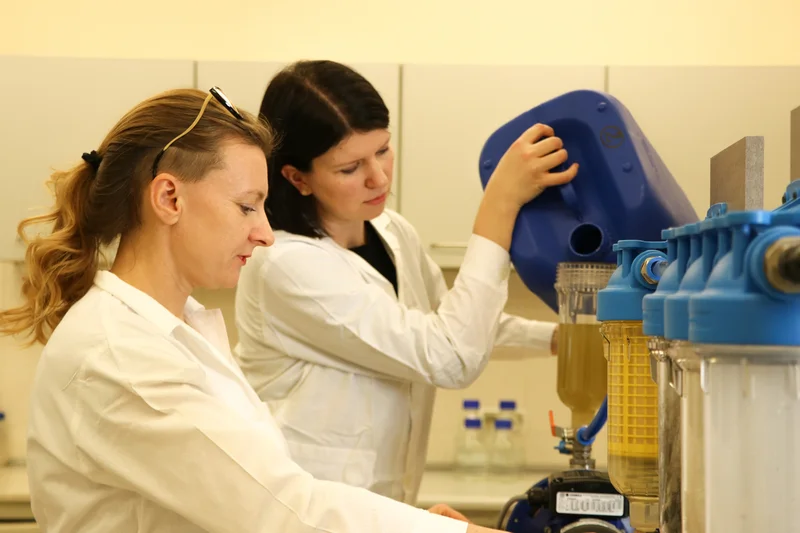Molecular caviar is a product that is available on the Polish food market. Filled with juice, the sweet balls are added to teas, desserts, coffees, yoghurts, and cocktails. However, the waste generated during the production of these, and other sweets is difficult to degrade. Researchers from the Faculty of Biology and Environmental Protection at the University of Lodz (UŁ) are working on how to use the by-product in an ecological economy.
Dr Justyna Nawrocka and Urszula Świercz-Pietrasiak from the Department of Plant Physiology and Biochemistry of the Faculty of Biology and Environmental Protection at the University of Lodz, have been working on solving this problem for a year. The research results are very promising and have been included in a scientific project “The use of a comprehensive bioremediation system in the ecological management of post-production waste produced as a result of the production process of food article components – molecular caviar”, under the Innovation Incubator 4.0 programme, implemented in cooperation with the Technology Transfer Centre.
“The production of molecular caviar, but also of other confectionery products: jellies or jellies, generates waste, which is difficult to dispose of because it contains thickeners, emulsifiers and gelling agents. The waste itself during the production of confectionery is small, but it is very difficult to deal with and this increases disposal costs”, explains Dr Justyna Nawrocka.
One of the Polish companies producing sweets, including the aforementioned ‘caviar’, approached scientists from the Faculty of Biology and Environmental Protection at the University of Łódź with a request to use waste in an unconventional manner.
This was the origin of the idea to use this post-production waste in a closed-loop economy, especially since post-production residues are non-toxic, contain no antibiotics, heavy metals, or other hazardous substances.
“We try to think in two ways in our research”, says Urszula Świercz-Pietrasiak. “Firstly, we would like to purify the waste so that the post-production water can be reused in the company, and secondly, we would like to manage some of this waste as a bioproduct or biosubstrate for plant nutrition.
Adrian Andrzejewski





